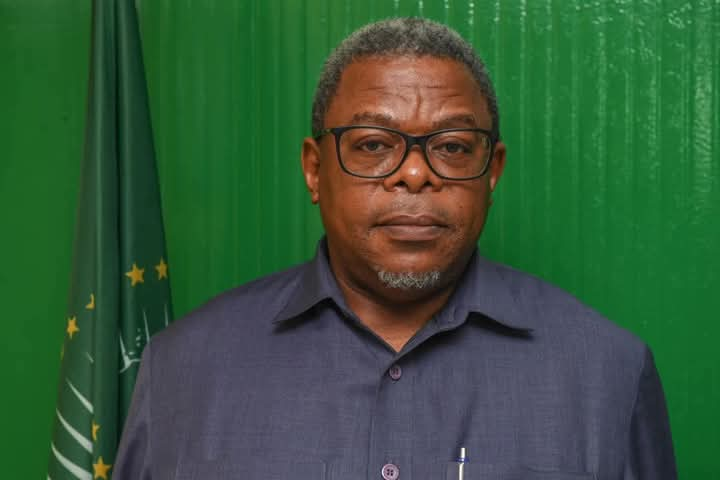The Somali government has reportedly requested the departure of Sivuyile Thandikhaya Bam, the Deputy Head of the African Union Transition Mission in Somalia (ATMIS), following remarks he made during a recent UN Security Council briefing that drew sharp criticism from Somali officials.
Mr. Bam, a South African diplomat, currently serves as the Deputy Special Representative of the African Union Commission Chairperson to Somalia, as well as the Deputy Head of ATMIS. On April 9, he addressed the UN Security Council on the security situation in Somalia, offering a bleak assessment of the ongoing offensive against Al-Shabaab.
During his briefing, Mr. Bam highlighted the militant group’s territorial gains in parts of the Lower and Middle Shabelle and Hiiraan regions. He also said that Al-Shabaab had established positions near Mogadishu, including in areas like Basra and Beerta Cali Mahdi, and had captured significant weaponry from Somali government forces — some of which pose a direct threat to key installations in the capital.
Bam also pointed to the serious financial difficulties facing ATMIS and called for urgent international support, while questioning the Somali government’s capacity to independently manage the country’s security in the absence of AU forces.
His comments were reportedly seen by the Somali government as exaggerated and undermining its efforts in the ongoing military campaign. Sources indicate that the government in Mogadishu viewed the statements as inconsistent with Somalia’s national priorities and diplomatic expectations from AU partners.
Officials have increasingly voiced concern over foreign officials who they believe are not aligned with Somalia’s strategic direction, and some see Bam’s remarks as the latest example. Calls for greater Somali control over AU troop-contributing nations and mission leadership have also grown louder in recent months.
In response to the controversy, Somali government officials have reportedly begun procedures to expel Mr. Bam from the country. There are also unconfirmed reports of increased pressure and warnings directed at him by political actors in Mogadishu.
The African Union and ATMIS have not publicly responded to the developments.



